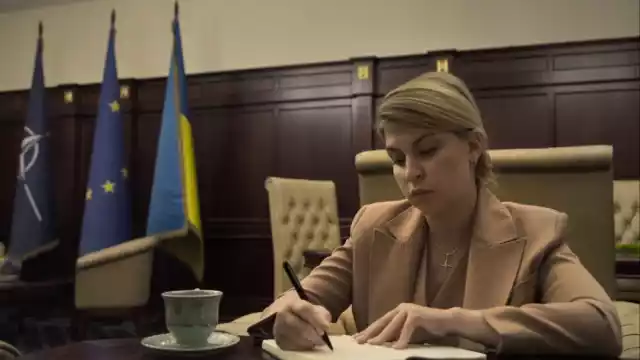Former football players reminiscing about their glory days, a shy copy-machine worker who falls in love with his neighbor, and a man combating the vestiges of slavery are among the stories at this year’s Brazilian Film Festival, which runs through Wednesday at the 35MM movie theater.
The festival, now in its third year, kicked off on Friday with “God Is Brazilian,” a “road movie” about what happens when God comes to northeast Brazil and encounters a nonbeliever.
Brazilian Ambassador Carlos Antonio da Rocha Paranhos said the goal of this year’s festival is to show a “wide spectrum” of Brazilian life.
“Brazil has a nice image in Russia,” he said, citing beaches, football, friendly people and samba as reasons for its popularity. “But Brazil is not only that.”
Highlights of the festival include Montreal World Film Festival grand prize winner “The Greatest Love in the World,” which follows a lonely scientist with an incurable illness who returns to the poor Rio neighborhood of his childhood, and “Romance,” about two actors starring in a production of “Tristan and Isolde” who blur the lines between art and reality as they fall in love with each other.
The festival is sponsored by the Brazilian Embassy in Russia, Brazilian PR agency Linhas e Laudas and the art association Cool Connections.
Linhas e Laudas executive director Dera Kosa said the festival will show Russians the beauty of “the Brazilian way of life,” while also underlining social problems that the two countries share, such as corruption.
One of the festival’s more unusual films is “Beetle.”
Set in the 1920s, when slavery was forbidden by Brazilian law but continued in practice, the film’s hero is a black man who practices capoeira, a hybrid of martial arts and dance developed by African slaves in Brazil, while struggling to overthrow the plantation labor system.
Leticia Babatella, one of Brazil’s most renowned actresses and whom locals may have seen in the soap opera “Clone,” took part in a question-and-answer session after the showing of the film “Romance” on Saturday.
A photo exhibit organized by airline TAP Portugal is also on display at the 35MM movie theater.
The festival will conclude on Wednesday night with “No Smoking,” in which an apathetic music teacher is inspired to quit smoking after falling in love with her neighbor.
The showing will be followed by a Q-and-A session with Andre Abujamra, who composed the film’s score and stars in another of the festival’s selections, “Once Upon a Time It Was Football.”
“Despite their differences in climate, Brazilians and Russians have a lot in common,” Paranhos said, including “a love of the family cocoon” and “the feeling of largeness” that accompanies living in a vast country.
Brazil and Russia will soon have one more thing in common: the World Cup, which Brazil is slated to host in 2014 and Russia in 2018.
Paranhos said that “more direct contacts” will continue to grow between the two countries as each prepares for the international sports event.
The Brazilian Film Festival runs through Wednesday at the 35MM movie theater, located at 47 Ulitsa Pokrovka. Metro Kurskaya, Krasniye Vorota.
Films are in Portuguese with Russian subtitles.
For a complete list of movies and showtimes, see www.kino35mm.ru or www.coolconnections.ru.
A Message from The Moscow Times:
Dear readers,
We are facing unprecedented challenges. Russia's Prosecutor General's Office has designated The Moscow Times as an "undesirable" organization, criminalizing our work and putting our staff at risk of prosecution. This follows our earlier unjust labeling as a "foreign agent."
These actions are direct attempts to silence independent journalism in Russia. The authorities claim our work "discredits the decisions of the Russian leadership." We see things differently: we strive to provide accurate, unbiased reporting on Russia.
We, the journalists of The Moscow Times, refuse to be silenced. But to continue our work, we need your help.
Your support, no matter how small, makes a world of difference. If you can, please support us monthly starting from just $2. It's quick to set up, and every contribution makes a significant impact.
By supporting The Moscow Times, you're defending open, independent journalism in the face of repression. Thank you for standing with us.
Remind me later.






